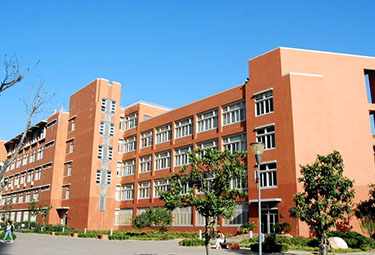The 6th International Symposium on Eco-Translatology
October 26-28, 2018, School of Foreign Languages, Zhengzhou University, Zhengzhou City, Henan Province, China
VISION OF CONFERENCE:
Eco-Translatology, with Neo-Ecologism1 as its theoretical foundation, and with metaphorical sense and literal sense studies of eco-translation as its two research orientations, is a newly-emerging eco-paradigm of translation studies from ecological perspectives. The objectives and missions of Eco-Translatology are to explore and expound ecological ideas and ecological connotations in texts to be translated and in translation activities, so as to make eco-reason and eco-principles the ecologicalized world outlook and methodology as the general guidance of translation studies.
Eco-Translatology probes into textual ecologies, translator–community ecologies, and translational environment ecologies, thus respectively resulting in the three core concepts of Translation as Textual Transplants, Translation as Adaptation and Selection, and Translation as Eco-Balance. Studies of Eco-Translatology are conducted at three levels: at the macro level – an entire translational ecosystem; at the meso level – ontological translation theories; and at the micro level – textual transplant operation between the two source-text and target-text ecologies. Furthermore, Eco-Translatology can also be viewed as a paradigmatic shift of thinking mode to interpret the nature of translation in terms of“textual life”, namely, translation as keeping LIVING things in the source-text ecology continuously ALIVE in the target-text ecology. In the past 17 years or so, in the light of Neo-Ecologism, a complete theoretical discourse system of Eco-Translatology has been initially constructed focusing on interplays, characteristics, interrelationships, and mechanisms of textual ecologies, translator-community ecologies, and translational environment ecologies.
The previous symposiums have attracted several hundreds of scholars from different countries and regions to present their papers on translation from ecological perspectives. With a number of internationally-acclaimed leading scholars to be invited, this 6th Symposium, sponsored by the International Association for Eco-Translatology Research (IAETR) and Zhengzhou University, will offer another opportunity for more experienced professionals and younger scholars to discuss and share their new research findings regarding the emerging paradigm.
Note (1): The term Neo-Ecologism is a synergy of such three philosophical props as the “Eastern philosophy of eco-wisdom in ancient times” and “holism of Western ecological philosophy”, as well as “selective adaptation and adaptive selection of the Approach to Translation as Adaptation and Selection”.
CONFERENCE THEME:
Eco-Translatology: New Orientations and New Developments
TOPICS:
This symposium will include, but not be restricted to, the following topics:
- Links between Translation and Ecology
- Translation studies from ecological perspectives
- Eastern wisdoms and Western concepts in Translation Studies
- Eco-Translatology research in a new era of eco-civilization
- Development of the discourse system of Eco-Translatology
- Applications of Eco-Translatology in translation and interpreting
- Database construction and its utilities to facilitate eco-translation studies
- Language services & Translation Technology: an eco-translatological perspective
- Eco-Translatology in relation to other translation approaches /paradigms
- R & D of Eco-Translatology in relation to global trends in ecology
- Further studies on TRANSLATION AS ADAPTATION AND SELECTION
- Eco-Translatology-inspired MA theses /PhD dissertations
- Translation modes, paradigms, and schools of thoughts: an eco-translatological perspective
- Studies on eco-translation ethics in the light of Eco-Translatology
- Translation Concepts: from“Polarization”to“Ecologicalization”
ABSTRACT SUBMISSION:
Each abstract should be no less than 400 words, including title, author, affiliation, research interests, country, telephone number and email address. Abstracts need to be submitted electronically as a WORD attachment to Mr. WANG Shou-ju at: This email address is being protected from spambots. You need JavaScript enabled to view it.All abstracts are to be reviewed by the Paper Selection Committee. Authors will be notified of the acceptance of their abstracts by June 15, 2018, and at the same time, the official Letter of Invitation will be sent to the presenter whose abstract is accepted and who can submit his/her full text of paper.






